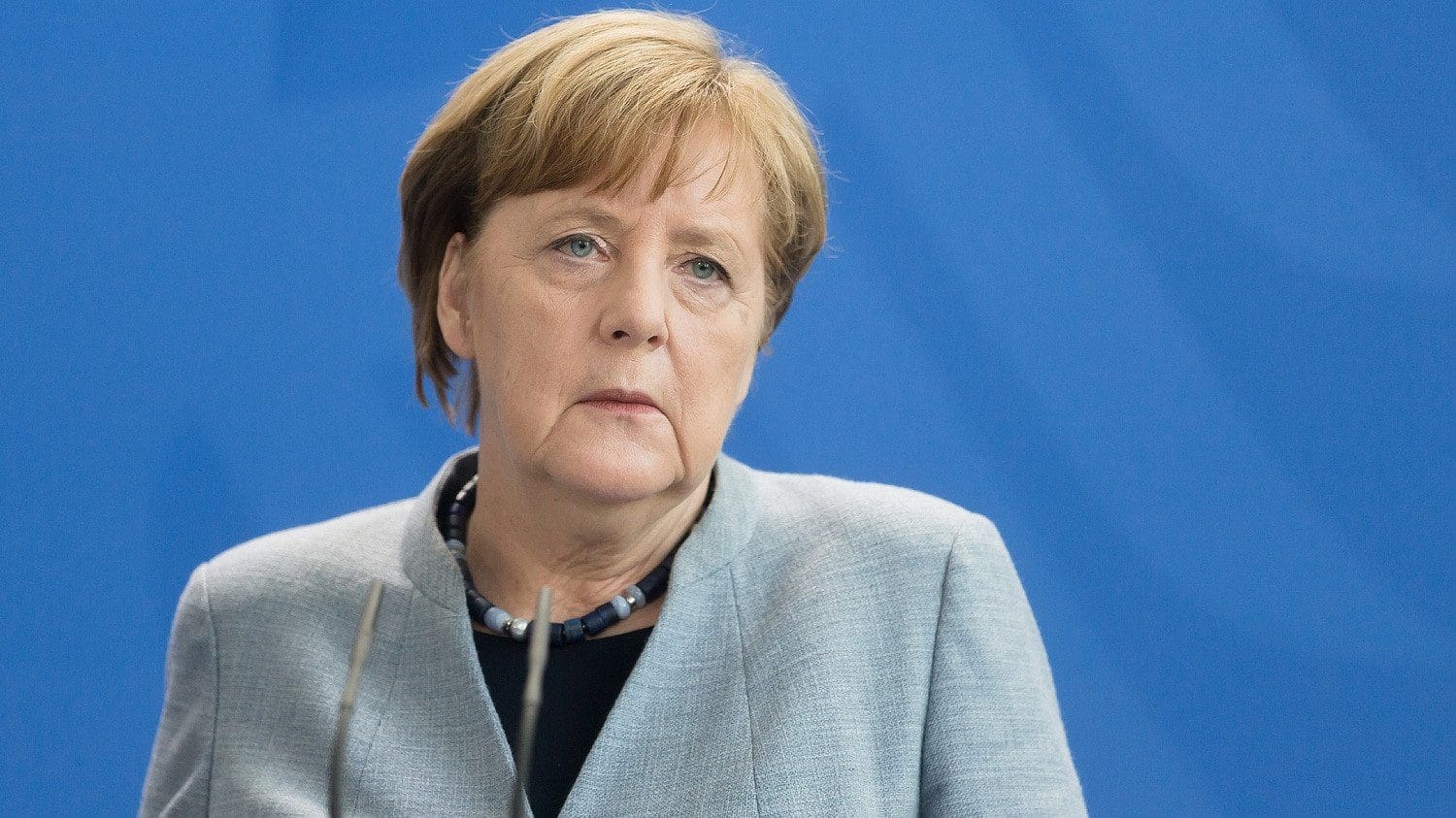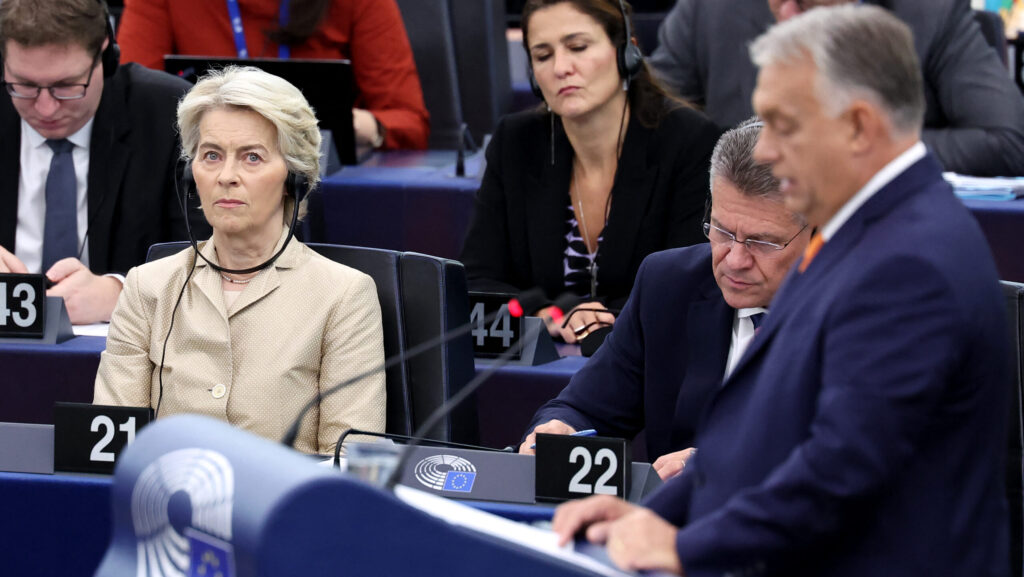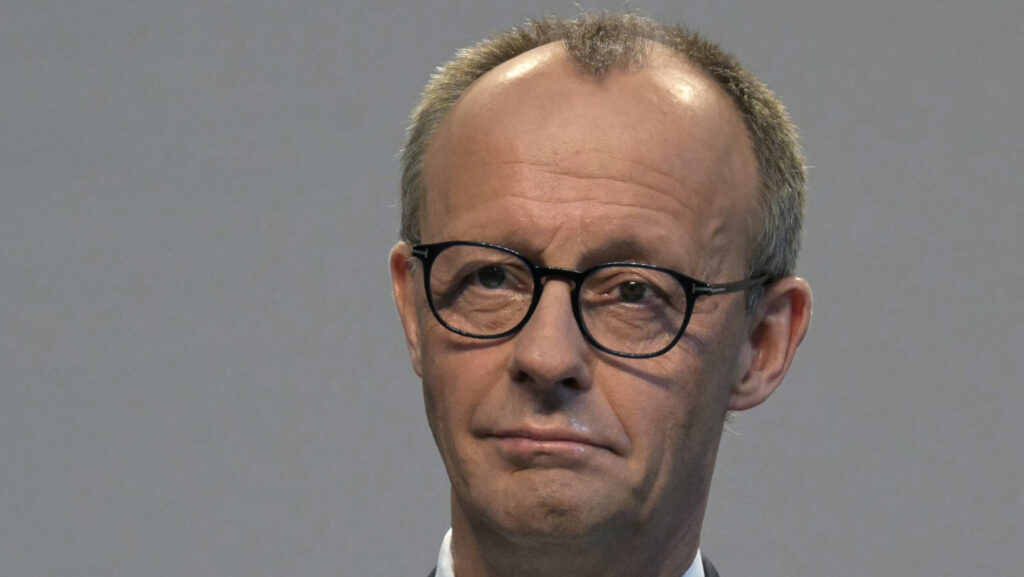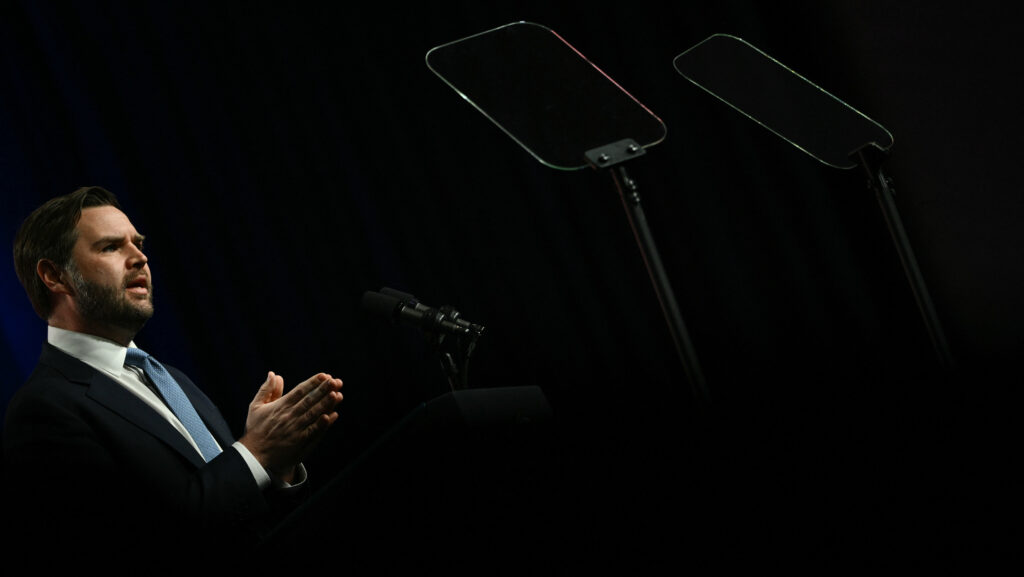Conclusions for Europe
Strange campaign, strange results—thus could we sum up the 2021 federal parliamentary elections in Germany in a nutshell. The campaign was strange indeed, as due to the COVID pandemic the parties were compelled to make rather short and concentrated efforts, and had to dispense with traditional major party events with in-person attendance. The election results are also unusual, with the trend toward relativizing the role and significance of the traditional big parties in German politics continuing and being amplified. Let us have a look at what is behind the results and what conclusions Europe can draw from the German elections.
Continued decline of major parties
For a start, let us turn our attention to the process of relativization of the biggest parties. This process has been ongoing for several years, causing surprises every time public opinion polls—and election results—become available. There are a number of factors underlying this process, three of which should be highlighted as those which, in my opinion, were decisive in the most recent elections.
First and foremost, the significant reduction of differences between mainstream parties should be noted. This process has been ongoing in Germany since the 1990s, but has intensified and accelerated significantly since 2015. This is no accident: the migration crisis upset German as well as European politics in a major way. Mainstream parties, however, did not move together towards the centre, towards uniformization. The largest distance was definitely covered by the CDU, starting from the centre-right and reaching the centre itself, while taking positions on certain issues that were clearly akin to those of the left. The CDU was followed, albeit carefully, by its sister party, the CSU, which in fact took the CDU’s earlier position in the left–right spectrum. Interestingly, although the SPD also took steps towards the centre, the distance it covered was shorter than that of the CDU from the other direction, which means that the CDU had the main role in reducing differences between the major parties to a minimum.
The major parties did not anticipate a loss of votes resulting from their swing to the centre; on the contrary, they were convinced that by doing so they would be able to attract a wider voter base
These changes have had an impact that was unexpected by either side: smaller parties on the periphery have managed to reach the solid stratum of voters whose options are oriented by values, and on whom major parties could safely rely for decades—until now. On the left, it was largely the Greens and, to a lesser extent, Die Linke who benefited from this electoral shift, while some room also opened up on the right for AfD. No doubt, the major parties did not anticipate a loss of votes resulting from their swing to the centre; on the contrary, they were convinced that by doing so they would be able to attract a wider voter base. In reality, however, the former scenario played out, which may serve as a lesson for other countries as well as European families of parties. In the case of the European People’s Party, for example, quite similar trends have appeared, and it is no accident that they have been accelerating since 2015. Seen from this angle, the migration and immigration crises have acted and continue to act as a catalyst of sorts: they accelerated the drift towards the centre and the left, a process which was previously more gradual. The German example, however, proves that rapid changes of direction are not necessarily followed at elections by the voters whose decisions are based on values, and that such rapid changes may lead to confusion, hesitation, and alienation among the traditional supporters of the parties.
Lack of a campaign issue capable of stirring up society and the issue of online campaigning
The second trend to have made a major impact on voters and the election results is, to a certain extent, linked with the one mentioned above: the disappearance of differences between main campaign themes of the parties, along with marked stratification of topics. In Germany, the election campaigns of the parties almost without exception focused on climate protection. This is especially true of the big parties, the CDU/CSU tandem in particular. This tactic allowed them to hijack the main electoral theme of the Greens, who were thus pushed back to third place, although they had initially hoped to become the strongest or the second strongest party. At the same time, the issue of climate protection overwhelmed everything, dominating discourse throughout the campaign. True, opinion polls confirmed that it was the single most important issue on the political agenda, but it fell short of being a theme that would pull together the majority of society; a little more than one third of German citizens indicated it as the top political issue.
However, the other issues deemed similarly crucial—including the economy, immigration, the COVID situation, pensions, and rents—became topics of less importance, and some of them were not mentioned during the campaign at all. Obviously, it is very risky to conduct a campaign without advancing a central topic, and this made very difficult for the voters to differentiate between the parties and programmes, although it is well known that an effective campaign (be it an election campaign or a product marketing campaign)should focus precisely on what makes the specific product different from and better than the rest.
This is the second important lesson of the German elections for Europe: the values which differentiate a given party or a family of parties from others should not evaporate, even while they are seeking cooperation. This is especially dangerous for the formations on the right, since liberals and those on the left abandoned fewer convictions of their own, and have been moving toward the centre to a lesser degree over recent years, while parties on the right have been making many more adjustments. Similarly to what we are seeing in Germany, the European right has reached a crossroads: if it continues to espouse more leftist values, it will risk alienating its own traditional voter base.
Similarly to what we are seeing in Germany, the European right has reached a crossroads: if it continues to espouse more leftist values, it will risk alienating its own traditional voter base
This is the second important lesson of the German elections for Europe: the values which differentiate a given party or a family of parties from others should not evaporate, even while they are seeking cooperation. This is especially dangerous for the formations on the right, since liberals and those on the left abandoned fewer convictions of their own, and have been moving toward the centre to a lesser degree over recent years, while parties on the right have been making many more adjustments. Similarly to what we are seeing in Germany, the European right has reached a crossroads: if it continues to espouse more leftist values, it will risk alienating its own traditional voter base.
The third major factor impacting the election campaign and the election results came from the online space. Due to COVID, the campaign was conducted in an unusual manner. Traditional, major campaign events with in-person attendance did not take place this time, although these are of particular importance in German politics. The pandemic made the campaign shorter and more concentrated, but at the same time more constrained. The experience of parties was that the online or hybrid events (the latter meaning events attended by a narrow circle of participants in person, and streamed online) were not very attractive for voters. Party supporters are apparently used to personal encounters, and expected to meet their favourite politicians and other sympathizers. Online events simply could not fulfil that role. The prominence of the online space, however, was felt in another way: in the absence of conventional mass events where the real strength and support of the big parties could be made visible, the online arena grew in importance as a channel for targeted political messages and campaign videos. At the same time, this presented a golden opportunity for smaller parties, as real differences can be almost completely eliminated in the online space where, with sufficient investment, even a small party can appear as an organization of national significance. This is also true the other way round: if bigger parties neglect online platforms, they will look less important than they actually are.
Politics is more and more about personalities
In Germany, there is a strong tradition of elaborating and presenting election manifestoes. Election campaigns are practically unimaginable without them. Still, an election manifesto of hundreds of pages will be read only by analysts and people with a special commitment to politics. It has been a clear-cut trend for many decades that politics is more and more about personalities, and Germany has been no exception. However, it was different in the last sixteen years as politics in Germany was essentially about a single person: Angela Merkel.
Before Merkel, the word chancellor did not have a feminine form. The word ‘Kanzlerin’ appeared with her, and it became established in German public discourse to such a degree that it became one with Merkel, and Merkel became one with ‘Kanzlerin’. One of the things that made the last election so special was that someone had to be picked to replace Merkel, which was not an easy task after one and a half decades, since possible successors needed to build trust and acceptance among people, and to make them believe that they were able to take Merkel’s place. In this respect, it was SPD nominee Olaf Scholz who enjoyed an advantageous position. Those who follow German politics may still remember that four years ago the SPD’s popularity received a temporary boost thanks to its candidate for the chancellor’s office: at the time, everybody was talking about the Martin Schulz effect. Although there are some people who now speak about a Scholz effect, the phenomenon in question is better described as the Merkel effect, because Scholz is not merely a minister in Merkel’s cabinet, but also the Vice Chancellor—which gave him a considerable advantage in the competition to decide who was the most qualified person to succeed Merkel as chancellor. Taking this into account, we can say that Merkel may have had some influence on the imaginary competition of would-be chancellors, although not exactly the way she would have liked.
There is also another, less visible and less clear-cut aspect of the issue of persons. Of the three candidates with any chance, Olaf Scholz was nominated last year by his party’s membership, i.e. by a large community. That gave him a democratic advantage, as well as a temporal advantage. First, a democratic advantage against Armin Laschet, who was looked upon by many in his family of parties as the product of negotiations behind closed doors. And second, Scholz also had a temporal advantage against Laschet and AnnalenaBaerbock, the candidate of the Greens, as they were both nominated by their respective parties a year later than he had been. Another possibly important lesson to learn, for other countries and Europe alike: a candidate’s nomination via a transparent method and at the right time may result in a substantial advantage.
What were the German elections about?
The biggest question was of course Merkel’s succession, but the results show that German voters did not really manage to give a clear-cut answer. In the last week of the campaign, the overall picture was becoming a lot simpler, as it seemed that if voters focused on personalities, then Scholz and the SPD would win, and if they focused on parties, the CDU/CSU would come out on top. The actual election results reflect an outcome between the two, as the SPD and Scholz did win in the end, but not by a significant margin. To a certain degree, this reflects the uncertainty and distrust of the German people and does not convey the feeling that after Merkel’s sixteen years of governance they found a chancellor for another sixteen-year period, but rather that they were ready to give Scholz additional credit to keep on fighting for the office of chancellor and to achieve additional victories at the next elections. The question of the new governing coalition is still undecided as this article goes to press, and I would not be surprised if it only emerged at the end of a protracted process. At the same time, the post-election mood of voters clearly shifted towards Scholz, which may be due in part to the familiar phenomenon of the ‘appeal of the winner’, and in part to the fact that in the voters’ eyes it is perhaps the most logical and most democratic solution if the new government is formed by the winner.
The support for the big parties took an unprecedented dive over the last period, mainly because of the CDU/CSU– SPD partnership
Long and complex coalition talks are to be expected, as well as a green revolution and a shift towards the left. Before the elections, several possible coalition options were discussed, but in the light of the actual results, their number is reduced to three, or, essentially, to two. Apparently, no one wants to see the continuation of the CDU/CSU–SPD partnership either with a reversed balance of forces or with an additional third party. This is no accident, as support for the big parties took an unprecedented dive over the last period, mainly because of the CDU/CSU– SPD partnership. Thus, two viable solutions remain, and it is still an open question which one will be preferred in the end: the black, green, and yellow ‘Jamaica’ coalition, or, currently with much better odds, the red, yellow, and green ‘traffic light’ coalition. It is easy to see that both solutions would lead to a shift towards the left. Germany’s Greens stand to the left of the SPD, and therefore if those two join forces with the FDP, it would result in a rather strong swing to the left; and if the CDU/CSU block is joined by the Greens and the FDP, the Greens will take a strong leftist stance in government, claiming, in the absence of Angela Merkel’s leadership, more assertive policies than the SPD would.
Whichever the outcome, the issue of climate protection is expected to receive even more attention, and a significantly more active and more leftist form of politics will emerge in Germany, since new directions are needed after Merkel’s sixteen years, and the new leadership will have to prove both domestically and in the EU that it is determined and in control. If we also take into consideration that German decision-making capability will be reduced due to the election results, the required speed of decisions will be certainly missing initially, as the concepts of three parties representing three completely different orientations will have to be reconciled. Thus, there is a strong possibility that similarly to the French president, they will try to achieve results in the European arena instead. This would be particularly true of the red–yellow–green coalition, as their European policies happen to coincide on several points, and if for nothing else but the balance of power, the SPD and the Greens would be more vocal on issues of European relevance. It would be an obvious choice of theirs to practice symbolic politics and discourse more actively on the European stage instead of accomplishing political and economic progress domestically—and this could result in the further intensification of criticism directed against Hungary and Poland. This would be the wrong scenario for both Germany and Europe, since the shift of a player who has been essentially moderate so far towards a more extreme position would be damaging to European unity as a whole. This is exactly why we hope to see that the German political standpoint based on stability, careful consideration, rationality, and pragmatism will prevail, and that the values represented by Merkel will also guide the next German government—for the good of Europe as well as Germany.
Translated by Balázs Sümegi








